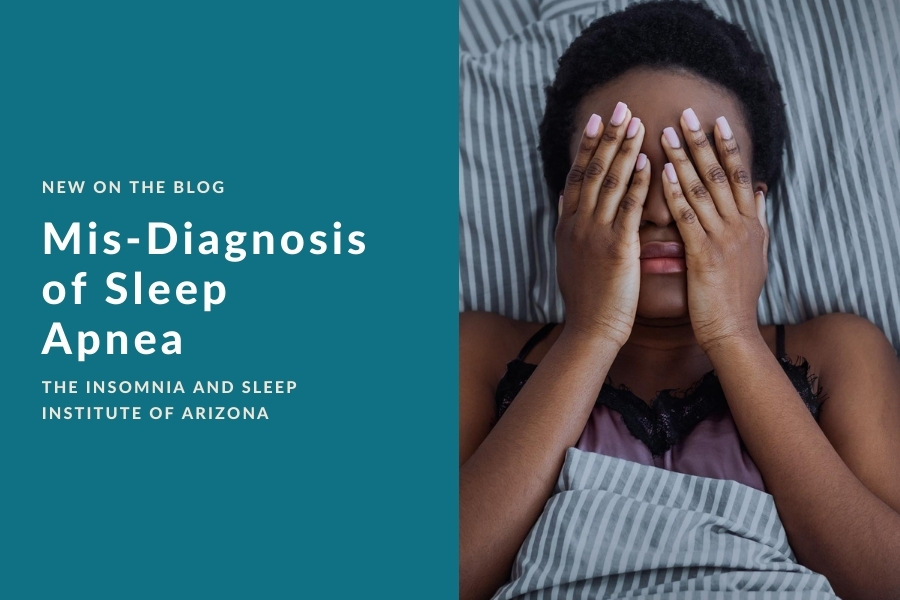Recently, a 78-year-old woman in Maine shared her story of a mis-diagnosis. When she was 64, her primary care physician referred her to a memory clinic and neurologist with the suspicion that Alzheimer’s was causing the Donna Beveridge’s memory loss—but, after years of mis-diagnoses, it was discovered the real culprit was sleep apnea. The Insomnia and Sleep Institute of Arizona is committed to providing patients with correct diagnoses, which are critical to informing testing and treatment. Many people don’t see a sleep specialist because oftentimes a referral from your GP is required (and can be difficult to get). That’s why this outcome-driven clinic does not require a referral. Your consultation is with a sleep specialist who can diagnose sleep disorders, and it all takes place at the “Face of Sleep Medicine,” home to the “Top Doc” as rated by peers for the last six consecutive years.
Beveridge shares her story with her local newspaper, revealing that 13 years ago she noticed she was feeling overwhelmed about minor things. She was also getting more forgetful, which was worrisome. When Beveridge presented her list of concerns to her GP, she says he told her, “You probably have early-stage Alzheimer’s” and that she should “be prepared to be in a nursing home within seven years.” Like many people, Beveridge believed her doctor and went along with his referral to a memory clinic and neurologist—notably missing from these referrals is, of course, a sleep specialist.
The Risk of a Wrong Diagnosis
Beveridge says she accepted her fate and began taking watercolor classes to “chronicle her Alzheimer’s journey.” This led to a bevy of art shows, and Beveridge also began showing her work in hospitals. During this time, she joined Alzheimer’s Association support groups designed for those at the early stage of the disease. Beveridge noticed that her fellow attendees had symptoms similar to hers, but she thought it was strange that theirs progressed while hers remained stagnant. Still, she recognized that everyone’s journey is different and didn’t think too much of it.
Five years after her initial diagnosis, she began seeing a new neurologist. This specialist asked if she had ever been tested for sleep apnea. Beveridge said no, and that sleep apnea had never been mentioned to her at all before. Her neurologist immediately called for a sleep apnea test, which revealed that she had “severe” sleep apnea. According to Beveridge, “My oxygen levels, which should be above 90, were in the 60s and 70s. Apparently, that was killing off my brain cells.”
Why Sleep Apnea Diagnoses are Difficult
Beveridge is fortunate that she happened upon a neurologist who was informed about sleep apnea—that isn’t always the case. The results of untreated sleep apnea can certainly mimic other disorders, such as dementia. When someone has sleep apnea, they stop breathing for relatively short moments while asleep. This, in turn, cuts off oxygen supply to brain cells. The brain immediately responds, “telling” the respiratory system to get back to breathing. Serious outcomes can occur if this happens too many times and for too long. Memory issues are just one side effect of ongoing unmanaged sleep apnea.
Beveridge’s neurologist recommended CPAP therapy, the gold standard in OSA treatment. She reports that while CPAP didn’t erase all cognitive issues, she “immediately” felt better. She recalls, “I had a tremendous amount of fatigue, which goes along with sleep apnea, and it was mixing in with the cognitive issues and so, it made it very hard to feel like myself and do my normal things. The CPAP made quite a difference.”
Beveridge’s Life Today with OSA
Three years after her OSA diagnosis, Beveridge saw another neurologist who deemed her Alzheimer’s disease no longer a correct diagnosis. Today, Beveridge still struggles with some cognitive problems, but these problems are not progressing. However, at 78 years old today, such issues are not uncommon simply due to age. Beveridge says she’s not as good at organization as she used to be and she can still get overwhelmed, but says it’s similar to other “older people.”
Only a sleep specialist can diagnose a sleep disorder. If you are concerned about any facet of your health, you deserve multiple opinions from a variety of experts. Sleep disorders affect a very large number of people. Schedule your consultation with a sleep expert at The Insomnia and Sleep Institute today by calling the office or completing the online form.





